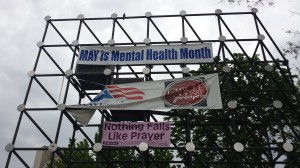
Just because you prayed for something to happen and later saw a result does not mean prayer was responsible.
Appeals to intercessory prayer — a request to God from one person aiming to better another’s life — as evidence of God existing are spectacularly weak, plagued by a fundamental error in informal logic known as the false cause fallacy.
The false cause fallacy occurs when one supposes that because one action (an initial action) had taken place before another (a result), the initial action must be the cause of the result [when this is actually not the case].
A Christian, for instance, may pray to God for a person to recover from a sickness. Upon recovery, the Christian may conclude that prayer was responsible for the recovery while falsely attributing prayer to the recovery. The fact that prayer alone happened before the recovery does not necessitate that prayer had caused the recovery; one would have to provide a very good explanation for why prayer had led to the recovery.
Humans are apt to find many ‘patterns’ among random events and draw conclusions when believing links between events exist. Some slot machine players, for instance, are especially superstitious and — although there is no good evidence to suggest certain superstitions are true (and plenty of evidence to suggest they are not) — believe that events wholly unrelated to a long or short-term outcome are responsible for winnings.
For instance, some slot machine players believe that hitting a button at a faster pace will lead to a better result (not just more spins per hour). Some slot machine players will believe that removing a player’s card, switching machines at certain frequencies, or rubbing a machine will lead to better results.
A slot machine player might, immediately following rubbing a machine (or even long after doing so) may believe that machine-rubbing was responsible for the positive outcome when it is actually the case that over the long-run — regardless of any rubbing — slot machines have random algorithms and pay schedules which lead to, in almost all cases except for rare lucrative casino promotions, the casino having an edge over slot players.
The Christian who believes that a prayer lead to recovery from sickness behaves similarly to the slot player who believes machine-rubbing lead to a jackpot winning; both detect patterns and wrongly attribute an initial action to an outcomes when there is no good reason to do so.
The prayerful Christian, too, uses similar thought processes as adherents to other religions; many religious individuals believe their prayers lead to divine intercession. Can a thought process be considered justified if similar thought processes lead to different results? The Muslims, Hindus, and Christians who claim that prayers lead to positive results cannot simply all be right…but they could all be wrong. Is the Christian believes the Muslim is wrong about Muslim appeals to prayer, and they both use a similar thought process, why should the Christian appeal be privileged?
As always, feel free to comment below.
More pieces on prayer — particularly in light of the ‘free will defense’ Christians often use to explain why God doesn’t intervene in human affairs to stop ‘moral evil’ — may be upcoming.